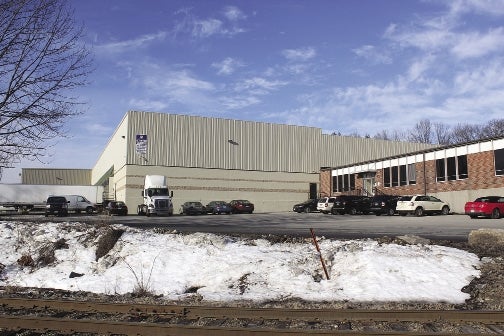A Maine-based property management firm is suing the owner of several Central Massachusetts facilities leased by Polar Beverages Corp. over what the Maine company says were “evasive and deceptive” negotiating tactics on the part of the properties’ owner, First Highland Management of Boston, when the two were negotiating a potential sale.
Ram Management Co. filed suit against First Highland in December, about a year after a months-long negotiation between the two fell apart. Ram had been in talks with Highland in 2010 and 2011 to purchase 26 Southbridge St. in Auburn and 1075 Southbridge St. in Worcester, which are actually part of one property that straddles the Worcester-Auburn line.
Polar Beverages operates a recently renovated warehouse at the location, which can be seen from Interstate 290. The property formerly housed a Rexnord Roller Chain facility, according to documents from the Massachusetts Department of Environmental Protection (DEP).
According to Ram’s lawsuit, First Highland was working on that construction project in 2010 while the two parties negotiated toward a sale of the two properties, which First Highland had picked up at bankruptcy auction five years earlier.
Talks continued until September, the suit says, when First Highland “put the negotiations on hold because of ‘construction problems.’”
Talks resumed six months later, in March, and the two parties forged a purchase-and-sale agreement in June, according to the complaint.
But Ram says it terminated the agreement in October after learning that First Highland’s contractors had earlier discovered contamination at the site that Ram alleges the firm kept secret during negotiations.
“The Highland parties did not reveal or suggest the extent of the contamination to Ram Management at the time negotiations resumed,” the complaint reads.
DEP documents show that Highland and its environmental contractors filed a notice in August 2010 disclosing that they had discovered chlorinated solvents at the site and were working to remediate the contamination.
Ram claims that its time and money spent evaluating the Highland deal were wasted because it did not have knowledge of the contamination, and that it missed out on or passed up other investment opportunities during the negotiations.
Reached by phone, Jonathan Stott, an executive at First Highland, said the company and its attorney would have no comment on the suit.
Ram Management and its attorney, Martha Gaythwaite, did not return messages left seeking comment.
Polar: No Impact On Operations
Christopher Crowley, executive vice president at Polar Beverages, said the cleanup did not impact his company’s operations at the time, and he commended Highland’s principals for being responsive landlords.
“Any issue we have, they’re all over it,” Crowley said, adding that he found Stott “ethical and fair.”
Crowley said Polar, which leases and owns a number of old industrial properties on or near Southbridge Street, has become accustomed to uncovering contamination on the properties.
One of the worst examples, he said, was when trichloroethylene was discovered at a Hope Avenue property Polar purchased in 2003.
The company paid to install a soil vapor extraction unit at the property for several years.
“We thought we’d spend $200,000 and we ended up spending about four times that,” Crowley said.

